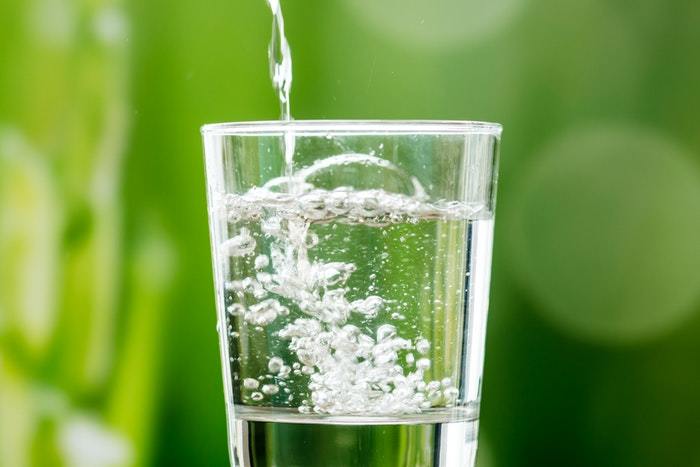For the human body, water is a vital resource.
We know it is indispensable for life itself, and the functions of water in the body provides a host of essential functions for good health.
There is no more important nutrient in our bodies than water. It is the most widely used nutrient at work within the body’s functions and processes, as well as constituting a huge part of its physical makeup.
In this article you will learn the functions of water in the body, its most important properties, the different types and recommended daily intakes.
Before digging in, as a valued reader of the blog, I’d like to extend you an invitation to our upcoming and totally FREE online training workshop:
‘The Proven Nutrition Strategies of Elite Trainers’.
This workshop is for you if you want to finally learn the best nutrition protocols and evidenced-based strategies to help your clients achieve life-changing results.
This workshop is our most complete training on how to make nutrition coaching easy and profitable.
All you need to do to attend is click here to register your free spot.

The typical man is made up of around 60% water, a woman around 50% and our brains around 75%. We can only survive a small number of days without water, yet can survive weeks without food.
Daily water intake is extremely important in helping to replenish the water lost through our bodily processes including urination, sweating and breathing.
When the water is not replaced, we become dehydrated:
Water is a chemical compound with the chemical formula H2O. A water molecule contains one oxygen and two hydrogen atoms that are connected by covalent bonds.
The Functions of Water In The Body
Transports nutrients through the body
Once a substance is dissolved in water, water becomes vital for transporting it throughout the body. Blood - which is 83% water - transports oxygen, CO2, nutrients, waste products and more from cell to cell. Urine is also mostly water.
Another very important transporter, urine removes waste products from the body.
Moistens eyes, mouth and nose
Water is needed for protection as well. It keeps your mouth moist and washes away dirt and grime on your eyes. Water even lubricates our joints, keeping them from getting stiff and making sure motion is smooth.
Can help maintain pH and electrolyte balance
Our bodies must maintain a very specific pH level of 7.4. pH values of less than 6.9 or greater than 7.6 are life threatening so it is essential that we have ways to keep pH from deviating too far from normal. Water is a reactant within a very important reaction that maintains pH at 7.4.
Water is essential to maintaining electrolyte balance within our bodies. Electrolytes are charged ions (such as Na+ or Cl- ) which must be kept at certain levels to maintain the proper amount of water in our cells.
Participates in many chemical reactions
As a chemical reactant, water is involved in many processes and pathways of the body. We use it to digest food in the gastrointestinal tract, to access stored energy for muscles and organ systems, and for countless other reactions.
Helps maintain normal body temperature
Serves as a shock absorber inside the spinal cord and in the amniotic sac surrounding the foetus
Reduces chances of kidney stones
Increased water intake appears to decrease the risk of kidney stones. (8) (9)
May reduce cancer risk
There are some studies showing that those who drink more water have a lower risk of bladder and colorectal cancer, although other studies found no effect. (10) (11) (12)
May reduce constipation
Increasing water intake can help with constipation. (13) (14)
Properties of Water
- Boiling point 100 degrees Celsius
- Freezing point 0 degrees Celsius
- PH=7
- Polarity = polar
- Conducts electricity = Not in pure H2O form
- Density at 25 degrees Celsius: 1g/cm3
Water As A Solvent
Water is the fundamental solvent for all the biochemical processes within the body. A solvent is the dissolving medium to which a solute (the substance to be dissolved) like a solid, liquid or gas is added. Water is a very important solvent that many different molecules in our bodies dissolve in.
When a solvent dissolves a solute, it is known as solvation. Solutes that solvate in water into ions in the body are known as electrolytes. These play important roles in our bodies from nerve transmission to muscle contraction.
Molecules that can be solvated by water molecules are called hydrophilic. Molecules that do not dissolve in water are called hydrophobic.
Electrolytes are single, electrically charged particles and play an important role in maintaining water balance and acid base balance in the body.
Sodium, potassium, prosperous and chloride are examples of electrolytes – dissolved substances in blood and body fluids that carry electric charges.
The key role of electrolytes is to balance the fluids inside and outside of the cells, so they can function properly and allow body fluids to bring cells the necessary nutrients while removing waste products.
Electrolytes also help create the environment in which the cells work takes place e.g. nerve-nerve communication, heartbeats and contraction of muscles.
There is another key reason why remaining hydrated is so important. When we lose fluid from the body, we also lose electrolytes. Maintaining healthy concentrations of electrolytes is critical in supporting the important activities of the vital organs.
Types Of Water
Water enters the body via liquid and foods, and some water is created within the body itself as a by-product of metabolic processes.
There are two types of water that we typically consume. This is usually determined by its source and how it is processed. It is also based on its concentration levels of three minerals - calcium, magnesium and sodium.
Hard water
Is usually sourced from low level sources and is known to contain high levels of minerals, primarily calcium and magnesium.
Soft water
Is usually sourced from high level sources or from deep in the earth, and has a higher level of sodium.
Sources Of Water
Potable (drinking) water
Drinking water is safe enough to be consumed by humans or used with a low risk of immediate or long-term harm.
The majority of our drinking water in the UK is consumed from the tap, but this is also used for toilet flushing, washing and landscape gardening etc.
All of our drinking water has been ‘treated’ before use and the extent of this depends on the source of the water.
Bottled water
Bottled water is big business and many people are buying this because of perceived health and safety benefits, or for its improved purity and ‘taste free’ factors.
This may not be the case, as there are no existing guidelines in place to require bottled water to meet higher standards for quality, such as a maximum level of contaminants, than for public drinking water supplies.
It is suggested that anywhere between 25-40% of bottled water comes from the same municipal supplies as tap water, and has only been filtered to remove chlorine to improve taste.
It’s therefore important to understand the various sources of bottled water and how this may affect its overall quality.
Artesian water
Water drawn from a well that taps into a confined water-bearing rock.
Ground water
Water which comes from an underground source of water that does not come into any contact with surface water.
Mineral water
Water that is drawn from an underground source and contains at least 250 parts per million of dissolved solids. Low mineral content = 250-500 parts per million of total dissolved solids.
High mineral content = 1500+ parts per million of total dissolved solids.
Purified water
Water from which all minerals have been removed. Also known as distilled water.
Sparkling bottled water
Water in which carbon dioxide is naturally present.
Spring water
Water derived from an underground formation from which water flows naturally to the surface of the earth.
Well water
Ground water derived from a rock formation.
Water Intake
Water leaves the body through several routes - the evaporation of sweat, in the moisture of exhaled breath, in the urine and in the faeces. It is also used to facilitate all the previously mentioned functions in the body.
This amounts equals between 1.4-2.8 litres per day.
Adults are advised to consume 1-1.5 ml of water for each calorie-expended daily.
For example: if your daily energy expenditure (BMR x activity level) is 2000kcal per day, then you would require 2-3 litres of water per day.
Water consumption throughout training should be a given, and it is suggested for every pound in bodyweight lost between the start and finish of training, 500ml of water per pound should be replaced.
When recommending daily water intake to clients, the general guidelines work very well:
- When thirsty, drink.
- When not thirsty anymore, stop.
- During high heat and exercise, drink enough to compensate for the lost fluids.
Become an elite-level nutrition coach
My team and I have just finished up creating a brand new online training workshop called 'The Proven Nutrition Strategies of Elite Trainers.'
Best part? It costs you nothing. This is your official invite - all you need to do to attend is click here to register.
This free nutrition course is for you if you want to finally learn the best nutrition protocols and evidenced-based strategies to help your clients achieve life-changing results.
Join me and I’ll walk you through the exact steps you need to take in order to get incredible client results, boost your confidence and build your business with proven nutrition coaching strategies.

